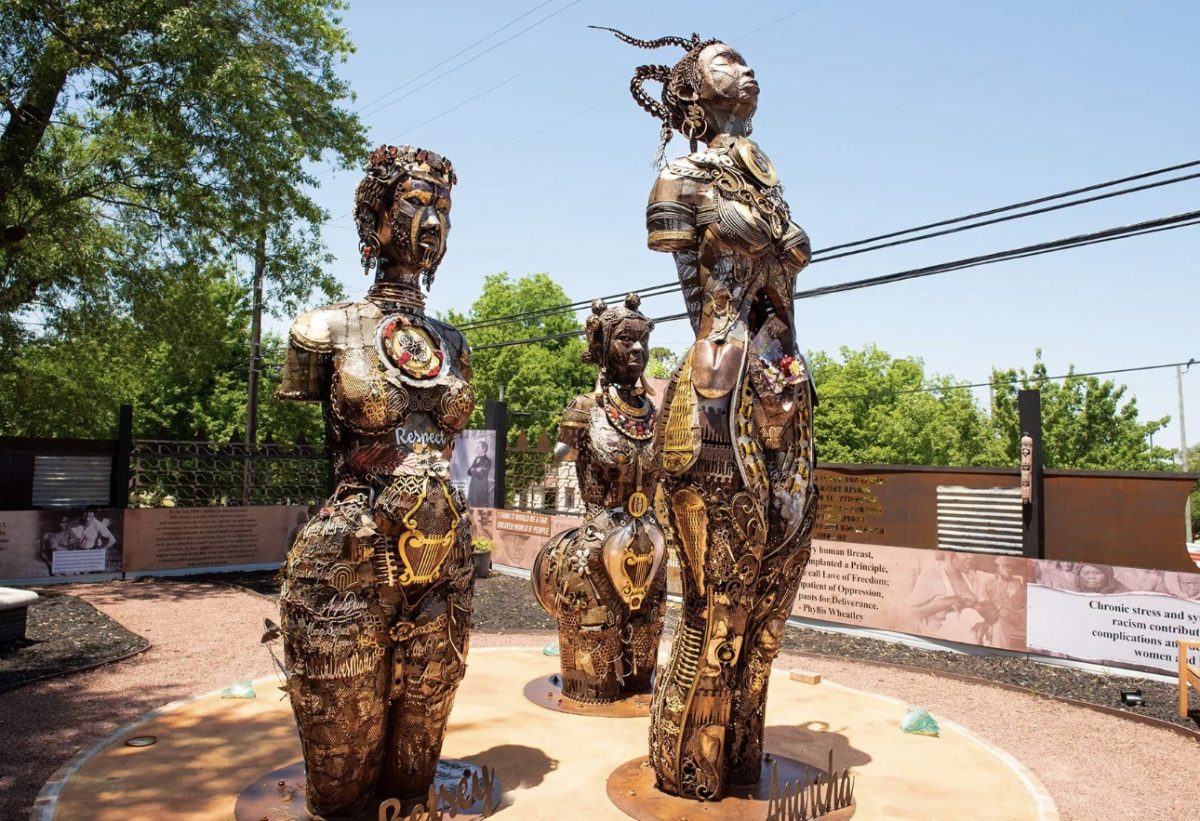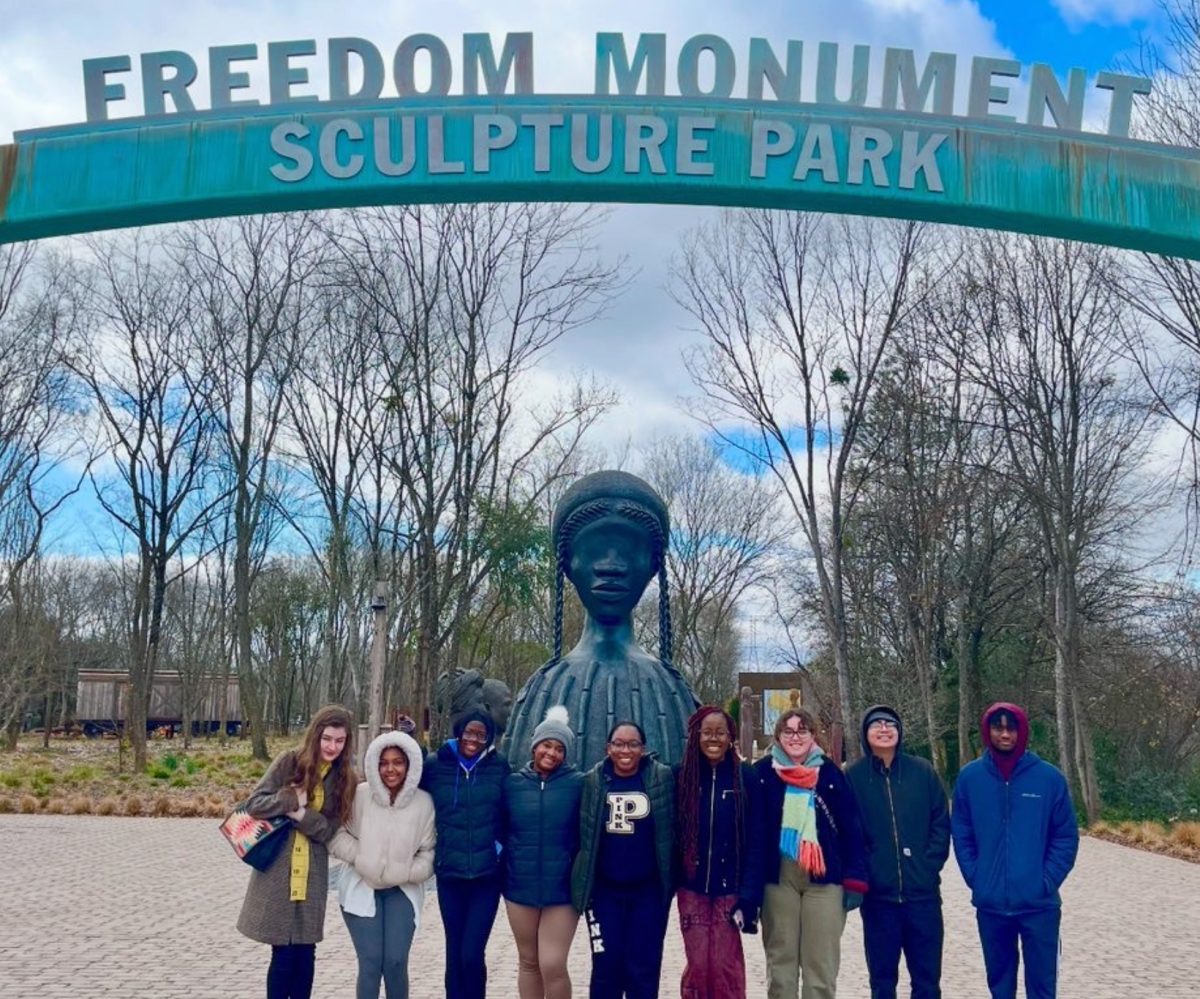Bearers of life, roots of existence, birth-givers if you will. Women are the beginning of life, and without them people would not exist to populate the Earth, not even men.
Yet while this is true, there are enough instances of hate, prejudice and discrimination directed towards women since the beginning of modern society that it feels like society still treats women as second class to men despite their biological (perhaps magical? I’m not a STEM major, thank you.) powers to bring more life to the world. This is not to say that women are only capable of having children, because time and time again women and non-masculine people have proved themselves to be worthy of praise and credit.
You would think that in 2023, we, as an international population, would have agreed to give credit where credit is due, but unfortunately, that has not been the case for a vast amount of people throughout time, women specifically.
I would like to jump back in time for this topic, to highlight some examples of women who have been, as I like to describe, cheated out of countless credit, awards and eternal recognition for ideas and products that have shaped the modern world.
Can you imagine living without disposable diapers, square-bottomed paper bags or the cure for leprosy? Maybe you can, but I would bet money, though, that the average person would not be able to live without common conveniences like computers, Wi-Fi and for some, hair straighteners.
What about gynecology? Try to imagine living in a world with zero knowledge on female-specific health. Personally, I don’t think we would have made it past the dinosaurs.
In all seriousness, gynecology is one of the most important fields of healthcare, due to its treatment of the health and well-being of half the world’s population. While this field is imperative to the reproductive and sexual health of many, it has a dark beginning and a history of unethical practices.
If you think a couple of men taking credit for DNA’s double-helix structure from Rosalind Franklin was bad, wait until you hear what the so-called “Father of Gynecology” did to achieve that status.
Dr. James Marion Sims was an Alabaman surgeon that practiced and coined many gynecological procedures during the Antebellum period. What is notable about his career are the multiple techniques and devices he created that are still in practice today, like his repairment of vesicovaginal fistulas, which often form as complications from childbirth or injury, the Sims Specula and the Sims position for medical examinations.
He has been praised for his work as a surgical gynecologist, while he was alive holding positions in national medical associations and having statues recognizing his achievements being placed all around the United States post-mortem.
While he was highly praised for his medical discoveries, there were many critics of his work in history and today as well, mainly because of his unethical and inhumane practices against Black enslaved women without the use of any anesthesia.
Sims had a wide access to enslaved people because he mingled with many plantation owners at the time, who hired him to treat their enslaved laborers of various injuries and ailments. He even set up a hospital in the middle of the Montgomery Slave Trade. While he never used anesthesia for his Black patients (because he was apparently one of those racists that was under the impression that Black people didn’t feel pain the same as white people), he did end up using anesthesia for his White patients when he set up the first Woman’s Hospital in New York.
Although I would love to continue talking about the wrongdoings of Sims against enslaved Black women, I would much rather shed light on the women that, in recent times, are being dubbed the “Mothers of Gynecology” (take that, Sims!), or the three enslaved women we know about today that Sims experimented on. Their names were Lucy, Anarcha and Betsey.
While undergoing multiple surgeries each over several years, Sims trained these women to be surgical assistants, so they could take care of each other while undergoing his experiments. The main significance of these women that I want to point out is that without them and their sacrifices they were forced to make, Sims wouldn’t have been given such a high title.
These three women paved the way for modern gynecology, and while they most likely did not consent because they were considered property and could not consent, they still deserve to be recognized for the violations against their bodies, and how all those experiments performed on them led to the female reproductive and sexual healthcare that we know today.
It is important to educate ourselves about these stories and the hidden figures that have been overlooked because it helps us to understand the social culture that surrounds us. What happened to Anarcha, Lucy, Betsey and unnamed others like them was tragic and unfair, especially considering how high of a standard Sims was held to afterward.
I believe it is helpful and almost obligatory to reflect on these events of the past and appreciate all the conveniences we have at our disposal now, how they came to be, and remember those who had to sacrifice in order for future generations to prosper.








